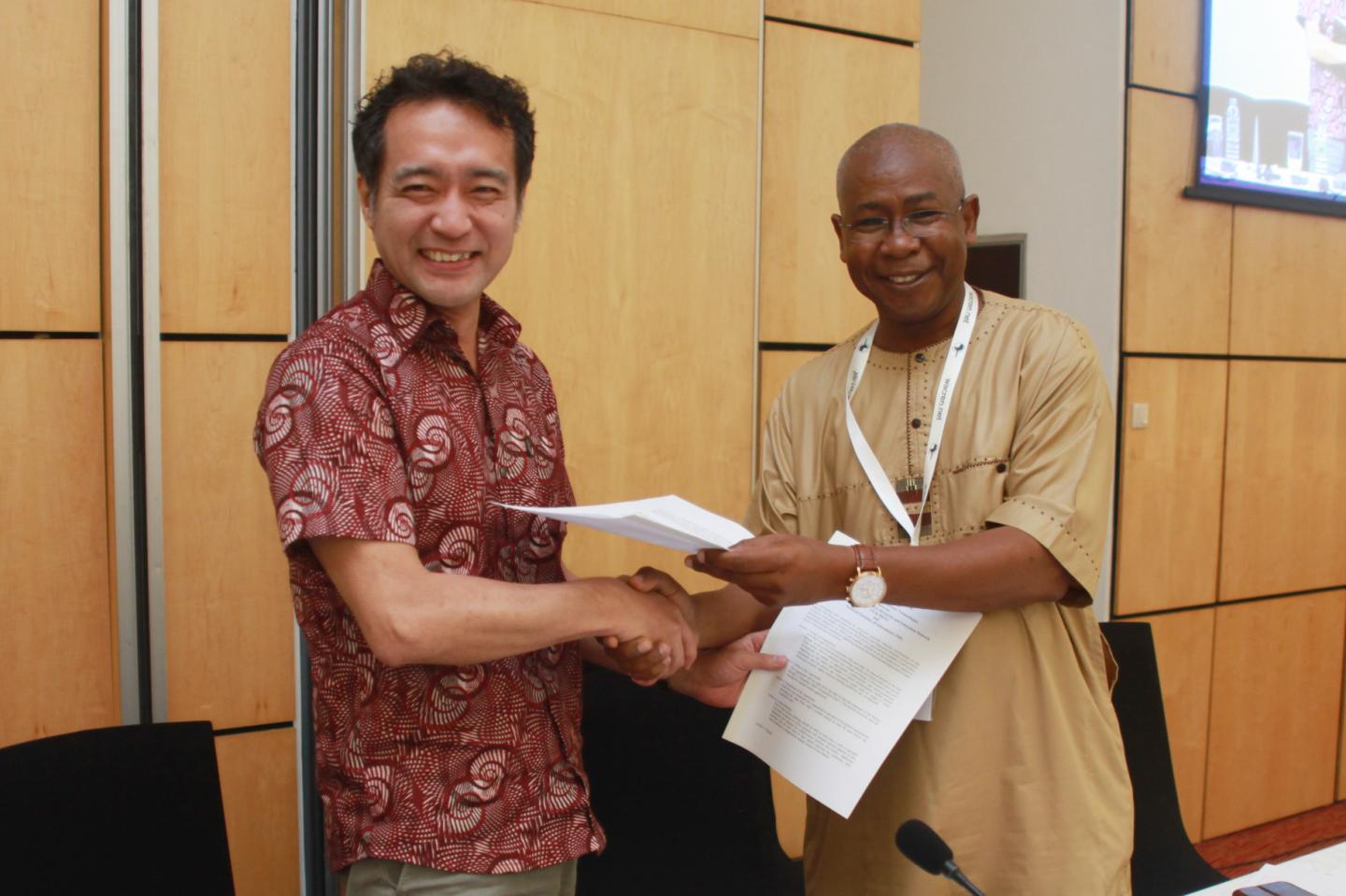
Credit: © National Institute of Informatics
National Research and Education Networks (NRENs) aim to provide high-speed Internet service for research and education communities of their respective countries. They also develop and provide scholarly communication infrastructure as “above the net” services by integrating tools to support researcher workflows across various disciplines in response to demands from member institutions, which rely on them for shared services and economies of scale.
Open Science is a new movement attracting global attention that seeks to make scientific processes and results more transparent and accessible. It involves making complete research materials, data, and lab procedures freely available online in addition to the research papers. Sharing these materials allows others to evaluate, use, and analyze them in new ways, which speed up scientific discoveries, reduce redundancy of experiments, and provide a mechanism for innovation, social justice and economic growth.
NII is developing a new e-research infrastructure for facilitating open science by using a repository system and a research data management (RDM) layer as the main components. The institutional repository is a system for collecting and disseminating the research output of institutions. NII has been developing a new repository system called WEKO3. More than 500 institutions in Japan use the current WEKO2 system through a cloud service named JAIRO Cloud. WACREN has a similar NREN-driven service model for African universities as NII, so cooperation will lead to the development of new functionality and sharing of experiences in the pilot operation.
In the research cycle, the RDM system is used before the research output is put into the repository. Appropriate management of data shared between collaborators can accelerate research and is important for research integrity. The RDM system is used in the researcher’s daily activities, so its integration with the repository system is expected to lower barriers and promote open science activity. Supporting RDM is new to both NII and WACREN; therefore, the collaboration will use contributions and experience from both partners to develop the institutional RDM system and deploy it in their respective communities.
###
About National Institute of Informatics (NII)
NII is Japan’s only academic research institute dedicated to the new discipline of informatics. Its mission is to “create future value” in informatics. NII conducts both long-term basic research and practical research aimed at solving social problems in a wide range of informatics research fields, from fundamental theories to the latest topics, such as artificial intelligence, big data, the Internet of Things, and information security.
As an inter-university research institute, NII builds and operates academic information infrastructure essential for the research and educational activities of the entire academic community (including the Science Information Network) as well as developing services such as those that enable the provision of academic content and service platforms. https:/
About the West and Central African Research and Education Network (WACREN)
The West and Central African Research and Education Network (WACREN) supports interconnections and fosters collaboration between R&E institutions in the region and international peers by building and operating a world class network infrastructure, developing state-of-the-art services, promoting collaboration among national, regional, and international R&E communities, and building the human capacity of the REN community.
WACREN was constituted in 2010, and membership is open to all 22 countries in the region. It currently has 13 participating National Research and Education Networks (NRENs) from Benin, Burkina Faso, Cameroon, Chad, Cote d’Ivoire, Gabon, Ghana, Guinea, Mali, Niger, Nigeria, Senegal, and Togo. WACREN deploys cloud-based infrastructure to ease technological challenges experienced by many of its members. https:/
Media Contact
Takao Fujiyoshi
[email protected]
Original Source
https:/



